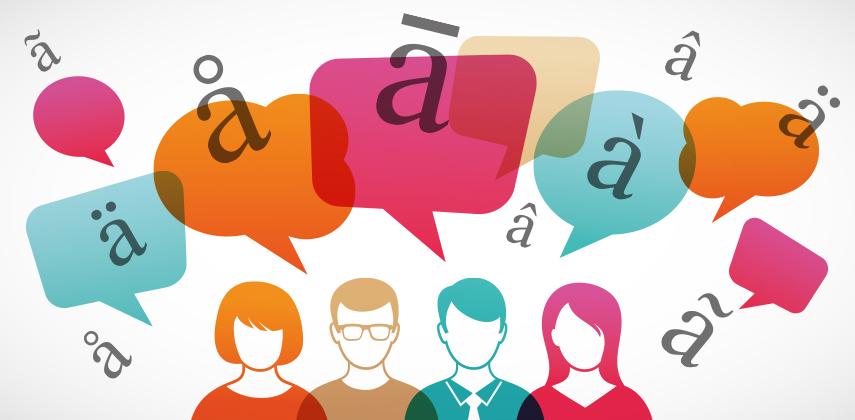In today’s globalising world, workplace diversity has become a much sought after characteristic for any company. Colleagues from across the globe can challenge our intellect and force us to address issues in new and inspiring ways. Despite the undeniable benefit of having international coworkers, the issue of understanding different accents of English speakers from around the world can sometimes create stress in the workroom. English continues to be the language of the business world, so here are our tips on how to understand one another and communicate better in the workplace.
First, let’s get a more robust understanding of accents and why different ethnic backgrounds generate unique English pronunciations. For those who speak English as a second language, it can be quite easy to understand why there are pronunciation discrepancies. For native Japanese speakers, the sound of the letter “L” does not exist in their consonant lexicon. Therefore, when speaking English, native Japanese speakers have difficulty with the pronunciation and the “L” can often be heard as an “R” sound.
For Indian English speakers, the cadence of their spoken English has a sing-song rhythm. This is because most native Indian languages put emphasis on syllables in a sentence rather than on stress, as in English. This creates emphasis on the wrong parts of the sentence, creating an up and down effect which can be disconcerting to follow along and understand.
For true native speakers of English, it might be most frustrating to find yourself confused by the English being spoken by other native speakers. British English is notorious for having multiple accents across the country. Australian English, despite being a derivative of British English, is slightly different. Speakers of American English, who may be more easily understood due to the popularisation of this version through music and entertainment, might have the most difficult time understanding accents because they do not experience language differentiation as much as those in Great Britain. To top it all off, each region retains its own slang and word usage, making context necessary for clear understanding of certain phrases.
Clear and open communication is undoubtedly a top priority for most businesses. Having a difficult time understanding your coworkers can be stressful and even embarrassing — not to mention mad for business and employee morale. Follow these steps to make communication easier in the workplace and to clear up confusion among the many varieties of English-language speakers you may have at your office.
Let the other person know you’re having trouble understanding them. Many times when we want to appear professional we don’t want to show our vulnerability. Admitting that you need someone to slow down when they’re speaking isn’t showing weakness; in fact, it demonstrates your commitment to getting the right information and your willingness to communicate effectively.
When in doubt, write it down. If you simply cannot understand what is being said, try communicating through email. If worse comes to worse, have the person write down the word or phrase you are having trouble understanding. Though it might be a bit time consuming for the other person, it’s worth the effort to ensure you’re getting the correct message.
Gain exposure. Exposing yourself to regional differences across the country is a great way to increase your listening skills and gives you a chance to practice speaking, too. The more you expose yourself to different accents, the better you will be able to understand them. You can acclimate yourself to accents through travel or by making friends with your foreign colleagues and engaging in polite conversation. If you are committed to having full understanding, these simple practices will bolster your skills rapidly.
Find the humour in the situation. The best way to get over a minor misunderstanding is tolaugh it off. Pride can often get in the way of productive work relationships, but you can get closer to people and alleviate stress by just laughing. Chances are, your coworkers will share in your laughter, too.
Diversity in the workplace is a certainly a great advantage in the workplace for any profession or industry. It might come with the challenge of slight miscommunication due to varying accents spoken in your office, but just remember that with every communication hiccup, your staff is learning to adjust to new situations. Continue on the path to open communication with patience, practice, and a smile.





